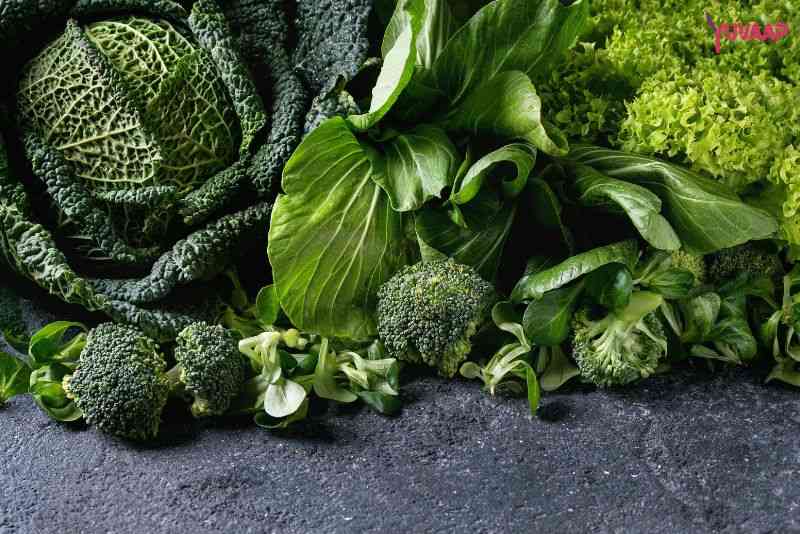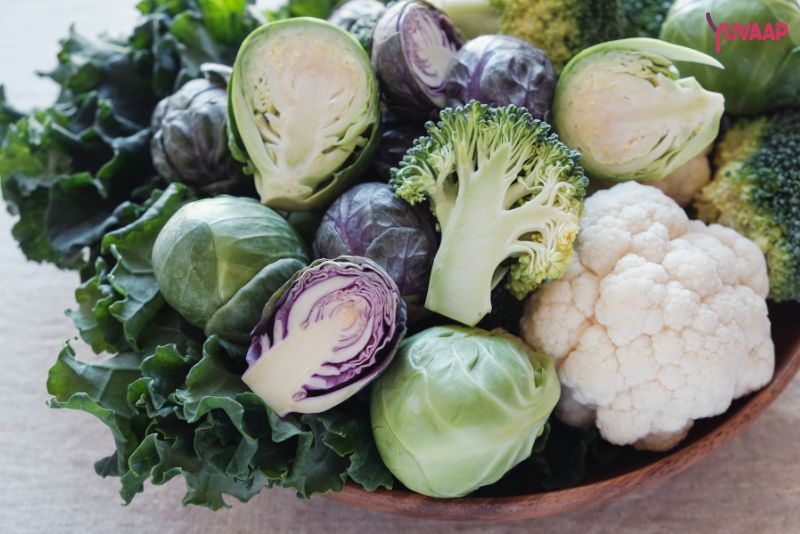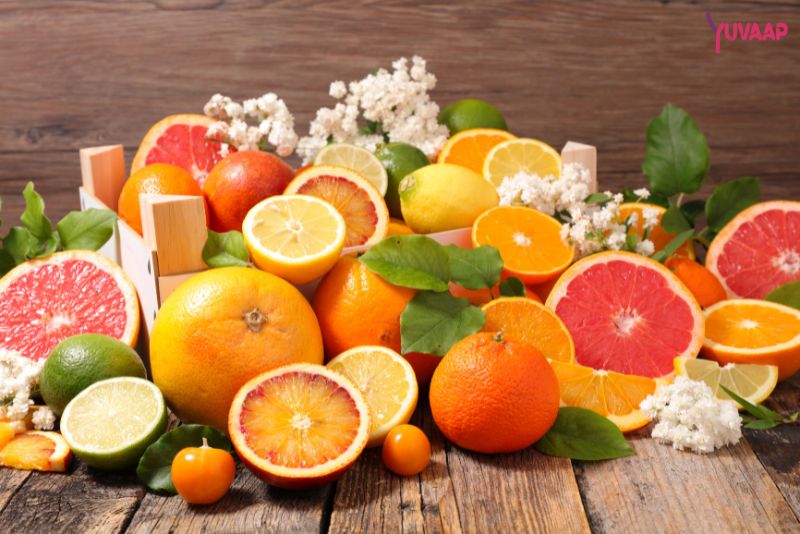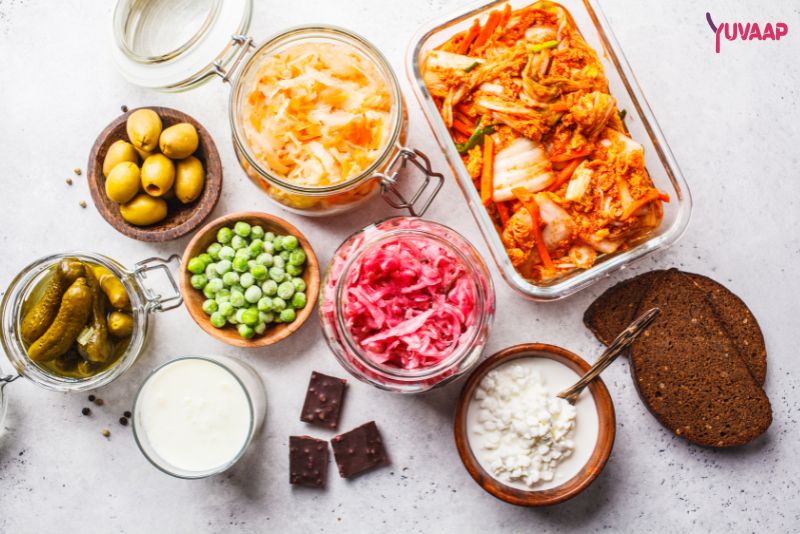In today’s fast-paced world, keeping good health and well-being through a nutritious diet is more important than ever. Yet, many people face common barriers to healthy eating, such as the perception that nutritious foods are too expensive, time-consuming to prepare, or simply not tasty. Additionally, dietary restrictions and unfamiliarity with certain foods can make healthy eating seem daunting. This blog aims to shatter these myths by introducing you to the top 10 affordable and delicious foods for good health. We’ll provide practical tips to make these foods easy to prepare and enjoyable to eat. Whether you’re a busy professional, a student on a budget, or someone looking to improve your diet, you’ll find that healthy eating can be simple, affordable, and incredibly rewarding. Let’s dive into these nutritious foods and discover how they can enhance your overall well-being.
10 Delicious Foods for Good Health
1. Leafy Greens

Spinach
Research shows that spinach is a powerhouse of nutrients and one of the most versatile leafy greens available. It is packed with iron, which is essential for maintaining healthy blood, and is also rich in calcium, vitamins A, C, and K. Spinach can help boost your immune system, support bone health, and improve your vision. It’s easy to add spinach to your diet—use it in salads, smoothies, soups, or as a cooked side dish. Whether you buy it fresh or frozen, spinach remains an affordable and nutrient-dense option.
Try this delicious Palak Aalo recipe or Spinach Tofu Curry recipe to incorporate more spinach into your meals.
Oats
Oats are an excellent whole grain option known for their high content of beta-glucan, a type of soluble fiber that helps lower cholesterol levels and improve heart health. They are also rich in vitamins and minerals, including manganese, phosphorus, magnesium, and zinc. Eating a bowl of oatmeal for breakfast can keep you full and satisfied for hours. To maximize their benefits, soak oats overnight to improve their digestibility.
Brown Rice
Brown rice is a staple whole grain that provides fiber, vitamins, and minerals. It helps regulate blood sugar levels, supports heart health, and improves digestive health. Brown rice is more nutritious than white rice because it retains the bran and germ layers. Soaking or sprouting brown rice before cooking can enhance its nutritional profile and make it easier to digest. It is versatile and can be used in a variety of dishes, from stir-fries to salads.
Millet
Millet is an ancient whole grain that is rich in magnesium, phosphorus, and antioxidants. It supports heart health, helps manage blood sugar levels, and improves digestive health. Millet is gluten-free and can be a great alternative for those with gluten sensitivities. Soaking millet before cooking can improve its nutrient absorption and digestibility. It can be used in porridge, salads, or as a side dish.
5. Legumes

Lentils
Lentils are an excellent source of plant-based protein, fiber, and essential nutrients. They are rich in iron, folate, and antioxidants, which support heart health, improve digestion, and reduce inflammation. Lentils are affordable and versatile, making them a staple in many diets. They can be used in soups, stews, salads, and curries. Soaking lentils before cooking can enhance their digestibility and reduce cooking time.
Chickpeas
Chickpeas, also known as garbanzo beans, are high in protein, fiber, and several vitamins and minerals, including folate, iron, and magnesium. They support weight management, improve digestion, and reduce the risk of chronic diseases. Chickpeas can be used in a variety of dishes, from hummus to salads and stews. Soaking chickpeas overnight before cooking can improve their texture and digestibility.
Mung Beans
Mung beans are a popular legume in Indian cuisine, known for their high protein, fiber, and antioxidant content. They help reduce inflammation, improve digestion, and support heart health. Mung beans can be used in soups, curries, and can also be sprouted for added nutrition. Soaking mung beans before cooking can reduce their cooking time and enhance their nutritional benefits.
Black Beans
Black beans are rich in protein, fiber, iron, and antioxidants. They support heart health, improve digestion, and help regulate blood sugar levels. Black beans can be used in a variety of dishes, from soups and stews to salads and salsas. Soaking black beans before cooking can enhance their digestibility and reduce cooking time.
6. Cruciferous Vegetables

Broccoli
Broccoli is a nutrient-dense cruciferous vegetable rich in vitamins C and K, fiber, and antioxidants. It helps boost the immune system, improve digestion, and reduce inflammation. Broccoli is also known for its cancer-fighting properties due to compounds like sulforaphane. It can be eaten raw, steamed, roasted, or added to soups and stir-fries. Including broccoli in your diet can significantly contribute to your overall health.
Brussels Sprouts
Brussels sprouts are packed with vitamins A, C, and K, fiber, and antioxidants. They support heart health, improve digestion, and reduce the risk of chronic diseases. Brussels sprouts are also known for their cancer-preventive properties. They can be roasted, steamed, or sautéed, making them a versatile addition to meals. Regular consumption of Brussels sprouts can help maintain optimal health.
Cauliflower
Cauliflower is a versatile cruciferous vegetable that can be used as a low-carb alternative to grains and legumes. It is rich in vitamins C and K, fiber, and antioxidants. Cauliflower supports digestion, reduces inflammation, and promotes overall health. It can be eaten raw, roasted, steamed, or mashed. Using cauliflower as a substitute for rice or potatoes can help manage carbohydrate intake while still providing essential nutrients.
Cabbage
Cabbage is a highly nutritious cruciferous vegetable that is rich in vitamins C and K, fiber, and antioxidants. It supports digestive health, reduces inflammation, and may lower the risk of certain cancers. Cabbage can be eaten raw in salads, fermented as sauerkraut, or cooked in soups and stir-fries. Including cabbage in your diet can boost your nutrient intake and promote better health.
7. Citrus Fruits

Oranges
Oranges are one of the most popular citrus fruits, known for their high vitamin C content, which boosts the immune system, improves skin health, and enhances iron absorption. Oranges also contain fiber and antioxidants that support overall health. They can be eaten fresh, juiced, or added to salads and desserts. Regular consumption of oranges can help maintain good health and vitality.
Lemons
Lemons are highly nutritious and rich in vitamin C, fiber, and antioxidants. They help improve digestion, support heart health, and boost the immune system. Lemons can be used in a variety of dishes, from salad dressings to beverages and desserts. Drinking lemon water can also aid in detoxification and hydration. Incorporating lemons into your diet can enhance your health and well-being.
Limes
Limes are similar to lemons and are also rich in vitamin C and antioxidants. They support digestive health, improve heart health, and strengthen the immune system. Limes can be used in beverages, marinades, and desserts. Adding a squeeze of lime juice to your dishes can enhance flavor and provide additional health benefits.
Amla (Indian Gooseberry)
Amla, or Indian gooseberry, is a potent citrus fruit widely used in Indian households for its medicinal properties. It is incredibly rich in vitamin C, which boosts the immune system, enhances iron absorption, and promotes healthy skin. Amla also contains antioxidants that help reduce inflammation. It can be consumed fresh, dried, or in juice form, making it a versatile addition to your diet. Including amla in your diet can significantly boost your overall health.
8. Fermented Foods

Yogurt
Yogurt, especially homemade or natural varieties without added sugars, is rich in probiotics, which are beneficial bacteria that support gut health. It is also high in protein, calcium, and vitamins B2 and B12. Consuming yogurt regularly can improve digestion, boost the immune system, and support bone health. Opt for plain, unsweetened yogurt to avoid added sugars, and consider adding fresh fruit or nuts for added flavor and nutrition.
Kimchi
Kimchi is a traditional Korean dish made from fermented vegetables, usually cabbage and radishes, seasoned with chili peppers, garlic, ginger, and other spices. It is rich in probiotics, vitamins A and C, and antioxidants. Kimchi can help improve digestion, boost the immune system, and reduce inflammation. Including kimchi in your diet can add a flavorful and spicy kick to your meals while providing significant health benefits.
Idli
Idli is a popular South Indian dish made from fermented rice and lentil batter. It is a great source of probiotics, protein, and carbohydrates. The fermentation process enhances the bioavailability of nutrients, making idlis easier to digest. They are typically served with sambar and chutney, adding more nutritional value to the meal. Idlis are a healthy and nutritious option for breakfast or snacks.
Sauerkraut
Sauerkraut is a fermented cabbage dish that is rich in probiotics, fiber, and vitamins C and K. It supports gut health, boosts the immune system, and improves digestion. Sauerkraut can be easily made at home or bought from stores. Adding sauerkraut to your diet can enhance the flavor of your meals and provide significant health benefits.
9. Healthy Fats

Avocado
Avocado is a nutrient-dense fruit rich in healthy monounsaturated fats, fiber, vitamins E, C, and B6, and potassium. It helps improve heart health, supports skin health, and provides sustained energy. Avocados can be added to salads, smoothies, or spread on toast. Their creamy texture and rich flavor make them a versatile and delicious addition to any meal. For more heart-healthy food ideas, read this blog on Food for a Healthy Heart.
Olive Oil
Olive oil is a staple of the Mediterranean diet and is known for its high content of monounsaturated fats and antioxidants. It supports heart health, reduces inflammation, and improves overall well-being. Extra virgin olive oil is the least processed form and retains the most nutrients. Use olive oil for cooking, salad dressings, or drizzling over vegetables to enhance their flavor and nutritional value.
Coconut Oil
Coconut oil is rich in medium-chain triglycerides (MCTs), which are easily digestible fats that provide quick energy. It also has antibacterial and antiviral properties, which can help support the immune system. Coconut oil can be used in cooking, baking, or as a dairy-free alternative to butter. Its mild flavor makes it a versatile ingredient in both sweet and savory dishes.
Nuts and Seeds
Nuts and seeds, such as almonds, walnuts, chia seeds, and flaxseeds, are excellent sources of healthy fats, protein, fiber, and essential nutrients. They help lower bad cholesterol levels, improve heart health, and support brain function. Eating a variety of nuts and seeds daily can provide a balanced intake of omega-3 and omega-6 fatty acids. Incorporate them into your diet by adding them to cereals, smoothies, salads, or enjoying them as snacks.
Incorporating a variety of fermented foods and healthy fats into your diet can provide numerous health benefits. These foods are not only nutrient-dense but also versatile and affordable, making them excellent choices for anyone looking to improve their overall health.
Incorporating these top 10 affordable and delicious foods into your diet can significantly enhance your overall health and well-being. From nutrient-dense leafy greens and antioxidant-rich berries to wholesome whole grains and protein-packed legumes, each food offers unique benefits. Adding fermented foods for gut health and healthy fats for heart health completes a balanced, nutritious diet. Remember, small, sustainable changes can make a big difference. Start today by integrating these foods into your meals and enjoy the journey to a healthier, happier you.
FAQs

Priyanka Khurana Goyal is a prominent Indian figure renowned for her diverse accomplishments and contributions across various fields.. Read more



